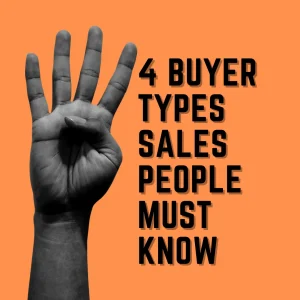Trust is the foundation that enables you to forge strong, lasting relationships with clients who are making significant investments.
This article will explore three of the most effective ways to build trust with high ticket clients, providing you with the insights and strategies needed to excel in this competitive field.
What is trust in high ticket sales?
Trust in high ticket sales is the confidence that clients place in your ability to deliver exceptional value and results.
It goes beyond the basic transaction, involving a deep belief in your integrity, expertise, and commitment to their success.
Trust means clients feel secure in their decision to invest a significant amount of money with you, knowing that you will meet or exceed their expectations.
Why trust matters in high ticket sales
Trust is the cornerstone of high ticket sales because it influences every aspect of the client relationship. When clients trust you, they are more likely to engage in open communication, provide honest feedback, and remain loyal over the long term.
Trust reduces the perceived risk of high ticket purchases, making clients more comfortable and confident in their decisions.
This confidence not only helps close the sale but also fosters repeat business and referrals, which are vital for sustained success in high ticket sales.
1 – How to build trust through personalization
Personalization involves tailoring your interactions and solutions to meet the specific needs and preferences of each client. It’s about understanding their unique situation and providing a customized experience that makes them feel valued.
Personalization is crucial because it shows clients that you are not offering a one-size-fits-all solution. It demonstrates your commitment to understanding their individual needs and delivering value specifically suited to them.
This approach fosters a deeper connection and builds trust by proving that you care about their success on a personal level.
Ways to implement personalization
- Client Research: Invest time in researching your client’s background, industry, and specific challenges. This knowledge allows you to tailor your approach and recommendations.
- Customized Solutions: Develop solutions that directly address the client’s unique needs and goals. Avoid generic pitches; instead, focus on how your offering can specifically benefit them.
- Personalized Communication: Use the client’s preferred communication style and channels. Whether they prefer email, phone calls, or face-to-face meetings, adapt to their preferences.
- Follow-Ups: Regularly check in with clients to provide updates and seek feedback. Show that you are attentive and committed to their ongoing success.
- Exclusive Offers: Provide special deals or previews that are tailored to the client’s interests and needs. This makes them feel valued and appreciated.
Consequences of not personalizing
Failing to personalize your approach can lead to clients feeling like just another number.
They may perceive you as indifferent or out of touch with their needs, which can erode trust and make them hesitant to move forward with high ticket purchases.
Without personalization, the client relationship can become transactional and shallow, ultimately affecting your ability to close deals and retain clients.
2 – How to build trust by demonstrating expertise
Demonstrating expertise means showcasing your deep knowledge and proficiency in your field. This involves consistently providing valuable insights and solutions that highlight your mastery and understanding of the industry.
Expertise builds credibility and positions you as a trusted advisor.
When clients perceive you as an expert, they are more likely to trust your recommendations and feel confident in their investment.
Demonstrating expertise reassures clients that they are making a wise decision by partnering with someone who truly understands their needs and the market.
Ways to demonstrate expertise
- Content Marketing: Share insightful articles, webinars, and case studies that address common client concerns and showcase your knowledge.
- Client Education: Educate clients about your products or services, including benefits, best practices, and industry trends. This positions you as a knowledgeable resource.
- Industry Involvement: Participate in industry events, conferences, and forums. Speaking at these events can further establish your authority.
- Testimonials and Case Studies: Highlight success stories and testimonials from past clients to demonstrate your proven track record.
- Certifications and Awards: Display any relevant certifications or industry awards that validate your expertise and commitment to excellence.
Consequences of not demonstrating expertise
If you fail to establish your expertise, clients may doubt your capabilities and question the value of your offering. They might turn to competitors who can demonstrate a stronger command of the industry, leading to lost opportunities and decreased client confidence.
3 – How to build trust through consistent communication
Consistent communication involves maintaining regular, clear, and honest interactions with your clients. It ensures that clients are always informed and that there are no surprises in the process.
Consistent communication fosters transparency and reassures clients that they are a priority.
It helps manage expectations and builds trust by keeping clients in the loop.
Regular updates and honest discussions create a sense of reliability and openness, which are key to maintaining a strong client relationship.
Ways to ensure consistent communication
- Regular Updates: Provide frequent updates on project status or new developments, ensuring clients are always informed.
- Open Channels: Make sure multiple communication channels are available, such as phone, email, and in-person meetings.
- Prompt Responses: Respond to client inquiries quickly and thoroughly, demonstrating your attentiveness and commitment.
- Transparent Processes: Be open about your processes, timelines, and any potential issues. This builds trust through honesty.
- Feedback Mechanisms: Implement systems for clients to give and receive feedback, fostering a two-way communication flow.
Consequences of inconsistent communication
Poor communication can lead to misunderstandings, mistrust, and frustration. Clients may feel neglected or uncertain about the status of their investment, which can erode trust and lead to dissatisfaction. Inconsistent communication can ultimately result in lost business and damaged relationships.
Misconceptions about trust in high ticket sales
In high ticket sales, building trust is often misunderstood. There are several misconceptions that can hinder your ability to establish strong, lasting relationships with clients. Understanding and overcoming these misconceptions is crucial for success.
1 – Trust is Built Overnight
Many believe that trust can be established quickly, but true trust requires time and consistent effort. Building trust involves a series of positive interactions and the delivery of reliable results over time.
2 – Trust Equals Friendliness
While being friendly can help, trust in high ticket sales is more about demonstrating competence, reliability, and understanding client needs. Friendliness alone won’t convince clients of your expertise or reliability.
3 – One-Time Efforts Are Enough
Some assume that a single gesture or effort is sufficient to establish trust. In reality, trust-building requires ongoing commitment and consistent actions that reinforce your dependability and integrity.
4 – Price Transparency Equals Trust
Transparency in pricing is important, but it’s not the only factor in building trust. Clients also need to see value, expertise, and a genuine commitment to their success beyond just knowing the cost.
5 – Trust is Unidirectional
Trust must be mutual. Clients need to trust you, but you also need to trust your clients to be honest and forthright. This reciprocal trust strengthens the relationship and fosters better communication.
6 – High-Pressure Sales Tactics Build Trust
Aggressive sales tactics can actually erode trust. High ticket clients are often put off by pressure and prefer a consultative approach where they feel understood and respected.
7 – Trust is Irrelevant with a Strong Brand
A strong brand can open doors, but individual interactions still play a critical role. Clients judge trustworthiness based on their personal experiences with you, not just your brand reputation.
Addressing these misconceptions is essential for developing genuine, lasting trust with high ticket clients. By understanding the true nature of trust, you can create stronger, more reliable client relationships that lead to long-term success.
Are you ready to build trust with your high ticket clients?
Building trust with high ticket clients is essential for success in high ticket sales. By personalizing your approach, demonstrating your expertise, and maintaining consistent communication, you can foster strong, lasting relationships with your clients. Apply these strategies to enhance your client interactions and consider signing up for our training to master the art of high ticket sales.




